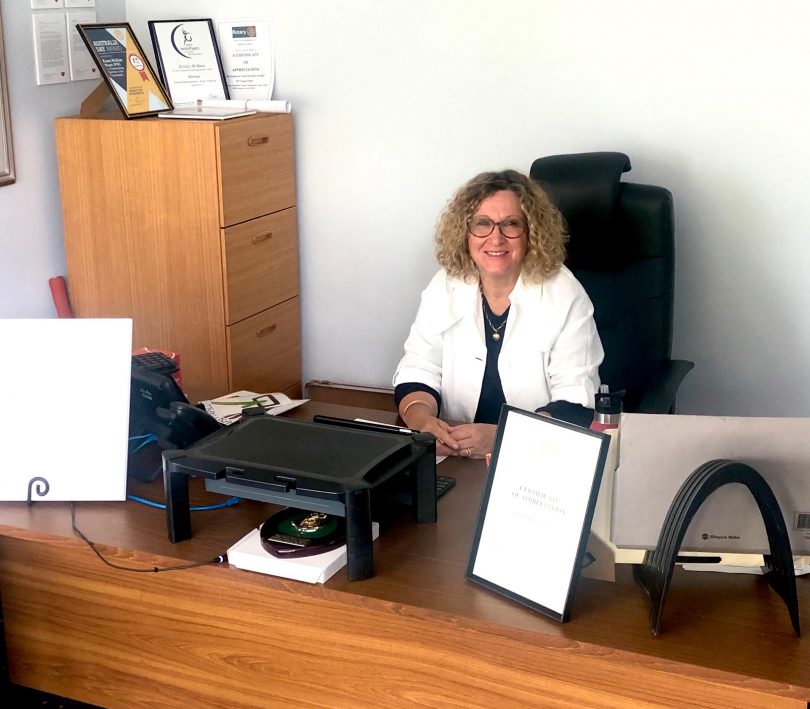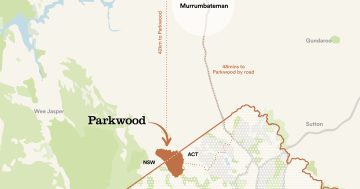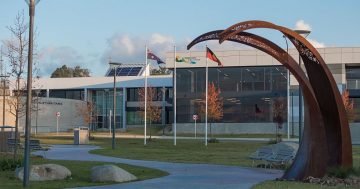
Bega Valley Shire Council Mayor Sharon Tapscott will approach the NSW Government for help with a review of council’s financial position. Photo: Supplied.
Bega Valley Shire Council will ask the NSW Auditor-General to review its financial position and examine what general manager Leanne Barnes says is a “challenging financial position” after an extraordinary meeting to address the situation this week.
Council has faced trenchant criticism from some quarters of the community due to its most recent audited financial statements showing a net consolidated deficit of $8.92 million and a net operating deficit of $14.092 million for the 2018-2019 financial year.
“[The meeting is] an opportunity to reiterate council’s challenging financial position for the benefit of every member of this community, and confirm the steps that have been, and are being, taken to improve the situation, as well as identify the challenges council has been aware of for several years in relation to our presentation of financials and financial reporting,” said Ms Barnes.
Before the disastrous summer of 2019-2020, community concern had crystallised around proposals for a Special Rate Variation (SRV) to fund council’s six swimming pools, plans that would have freed council’s General Fund but raised the ire of some ratepayers who felt the expenditure should be managed by council within existing funding.
The plan was dropped in January although an SRV for the pools remains an option in council’s longer-term financial planning moving towards 2023.
Rates will rise in the next financial year by 2.6 per cent, which is the rate pegged limit. Ms Barnes said that in common with Bega Valley, many other NSW councils were significantly financially constrained.
In Bega Valley Shire Council’s case, the need to remediate rolling natural disasters, make safe and rebuild infrastructure, and support the community through recovery has added considerably to its expenses, as have the assets council is now required to manage, said Ms Barnes.
“We have also stepped up work in roads, bridges and recreation and leisure assets,” she said. “Council has not undertaken any loans borrowing program to support these capital assets projects, rather council has sought to pay down the existing loans programs.”
Ms Barnes has faced personal criticism for her management of council finances, although Mayor Sharon Tapscott recently defended the general manager against suggestions councillors had lost faith in her management. Council heard that reporting errors had not affected the cash position of council.
“I do not step away from the fact that poor financial reporting and problems with staff turnover have compounded our issues,” said Ms Barnes.
“There has hardly been a period during the past six years where our staff, who are also members of this community, have not been responding to, recovering from or rebuilding after a disaster.”
Ms Barnes noted the full impact of rate waivers from fires and COVID-19 has also had an effect on council’s cash flow, a situation that’s likely to take several years to fully resolve.
“All that aside, we absolutely acknowledge there are fundamentals we need to get right and be better at,” she added.
“I take full responsibility for the governance and reporting oversights highlighted again at today’s meeting.”
Council staff, including director of business and governance Iliada Bolton, are working with the independent Audit, Risk and Improvement Committee, the NSW Auditor-General, the Office of Local Government, and external auditors.
Council will consider its cash reserve position in briefings during the coming weeks. A report will be presented to council in August for resolution prior to the finalisation of the 2020 audit.
Council has sought the support of Member for Bega Andrew Constance in funding the review, and Mayor Tapscott will also seek support from the NSW Minister for Local Government Shelly Hancock.












